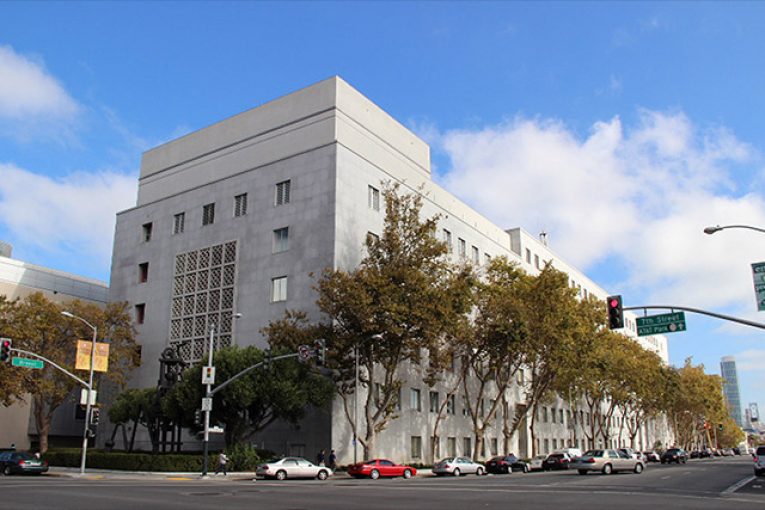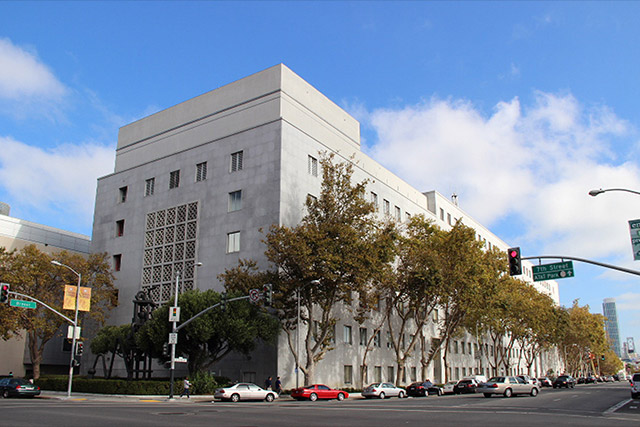

By Robert Meastas
Defendant and Investigators Testify in Child Sexual Assault Trial
By Robert Meastas
The trial of Antonio Carter-Bibbs and Patricia Kenard continued Monday, June 10th in Department 25 of the San Francisco Hall of Justice. Carter-Bibbs and Kennard were charged with sexual assault of a minor in their custody.
Four witnesses testified. Witnesses included a San Francisco social worker who interviewed the victim a short time after the time of incident. The defendant, Carter-Bibbs, testified on his own behalf as a prelude to testimony from investigators for the San Francisco District Attorney’s Office and Public Defender’s Office, respectively.
The matters date back to early January 2019, whereby Carter-Bibbs, Kenard and her children lived together in a San Francisco apartment building.
Testimony from a social worker, Gloria Samayoa, who interviewed the victim centered around a Tom Lyons’ forensic interview method of interviewing children, regarded as a commonplace method of interviewing children who are potential victims of abuse in San Francisco. Samayoa, a seasoned social worker, and has interviewed over 2,000 children in her career.
The Tom Lyons’ method of interviewing children includes ten steps intended to be followed to comfort children and elicit information in a nonintrusive or commanding manner. The social worker’s testimony was accompanied by a video recording of the interview. The interview was conducted pursuant to the outline of the method but did not feature precise language from the interviewing guidelines. Counsel  believed some steps were missing.
believed some steps were missing.
Although questions were raised by counsel as to why every step of the Lyons’ method was not applied during the interview, the social worker concluded that she believed some use of language in the interview elicited a triggering response to the victim. The information derived from the interview may have been affected in part by the victim’s growing frustration with the content of interview questions and the interview’s interrogative nature.
Unclear statements were made by the victim throughout the interview, placing accusations and blame on the defendants at times and later reducing interview statements to highlight Carter-Bibbs and Kennard’s frequent arguments and exchanges of obscenities.
The defendant Carter-Bibbs testified about his background in construction and the intricacies of his relationships between he and Kennard.
Carter-Bibbs stated that he was not entirely informed by Kennard as to reason or purpose behind her children being taken by Child Protective Services, and was surprised by the children’s sudden absence in January 2019. Carter-Bibbs testified that he intended to leave some breathing space and separation between he and Kennard so that Kennard could have an opportunity to raise her children as she saw fit.
Carter-Bibbs stated that he engaged in frequent arguments with Kennard that grew to be aggressive at times, but never physical. Carter-Bibbs also stated that he had never had a verbal, nor physical or sexual altercation with the children living in his apartment. He rather chose to leave discipline and childrearing to Kennard. Carter-Bibbs conceded his verbal bouts with Kennard may have been overheard by the victim, especially considering the small space of their apartment. He also conceded that he engaged in sexual acts with Kennard that the victim may have been witness to, however such acts were ceased upon realizing that the victim was awake.
Carter-Bibbs consented to a DNA test and a polygraph lie detector test, with results to be determined (or negative; the result was not mentioned in court).
The District Attorney Investigator interviewed was questioned primarily due to some amount of potential misconduct based in the movement and transfer of car seats owned by the District Attorney Jenkins or the District Attorney’s Office used by the victim.
The Public Defender Investigator interviewed had stated that he witnessed the District Attorney Investigator outside a temporary residence the victim stayed at. He believed there to be a possibility that the District Attorney’s Office had dropped off the proprietor of the residence and had asked them questions surrounding the case.
Incomplete Training by the Forensic Interviewer
Forensic interviewer admits she did not completely go through the whole procedure of the Tom Lyon method with the alleged four-year-old victim. The trial of the people vs. Antonio Carter-Bibbs (Defendant 1) and Patricia Kenard (Defendant 2) has intensely continued.
Eric Quandt, the San Francisco Public Defender is leading the defendant’s case in which Mr. Carter-Bibbs is being charged for committing sexual acts with a minor who is the daughter of Ms. Kenard. So far there are no physical DNA or evidence that shows he committed such an act. The basis for the Deputy DA’s charges stem from what the four-year-old said had happened to her to Ms. Kenard’s mother.
Prior to today’s court watch it was learned that Carter-Bibbs and Kenard stayed in a very small studio along with Ms. Kenard’s four-year-old daughter. Mr. Carter-Bibbs lawyer (Eric Quandt) had explained that at times the co- defendants would have sexual intercourse in the studio while the four-year-old would attempt to sleep which was not far from their bed.
On Monday, the forensic interviewer (Gloria Samayoa), Mr. Carter-Bibbs, the Inspector for the DA office (Lessa Vivian), and the San Francisco public defender were all on the witness stand. The witness testimony that stuck out the most was the forensic interviewer. Gloria Samayoa, a trained forensic interviewer for the District Attorney’s office was on the witness stand for the Deputy DA (Ms. Jenkins) this morning. During the Deputy DA’s questioning to the forensic interviewer, Ms. Jenkins asked her about her line of work and how she conducts her interviews when given these circumstances. Ms. Samayoa is a forensic interviewer and a child social worker who interviews with children who have been exposed to trauma such as neglect and abuse.
In one of the forensic interviewers’ answers to the Deputy DA, she went on to discuss her job functions and how she uses the Tom Lyon method for her interviews with children who deal with trauma. The Tom Lyon method is a 10-step investigative interview in which the forensic interviewer asks 10 sets of questions to a child who is alleged to have been abused or neglected.
During the forensic interviewer’s testimony on the stand, the Deputy DA presented the court with her evidence of a CD audio and visual recording of the interview between the Gloria Samayoa and the four-year-old. During the interview, Ms. Samayoa was asking questions to the four-year-old that coincided with the Tom Lyon method.
The reason why the Tom Lyon method and the importance of going through the whole 10 step interview question is to not only find out the truth, but to also observe how much credibility that child actually has.
During Eric Quandt’s cross examination to Ms. Samayoa, he mentioned if she went through all of the procedures within the Tom Lyon method. These 10 step investigative interviews that were all supposed to be within the interview process between the forensic interviewer and the little girl did not include at least one step and she admitted that to the courtroom. This step is referred to as the “Practice Narrative” phase.
The “Practice Narrative” phase are one of the questions that talks about what the little girl likes and doesn’t like. Then it is followed up with her reasons of what makes her like those certain hobby. As the forensic interviewer continued on with her questions, she realized that the four-year-old was deregulating and could not go on with the interview. The forensic interviewer also explained the reason why she couldn’t continue on. She told the court that the little girl was not developmentally there and had not displayed normal behavior. If the little girls’ words are the basis for these charges, is she coherent enough to actually tell the truth?




